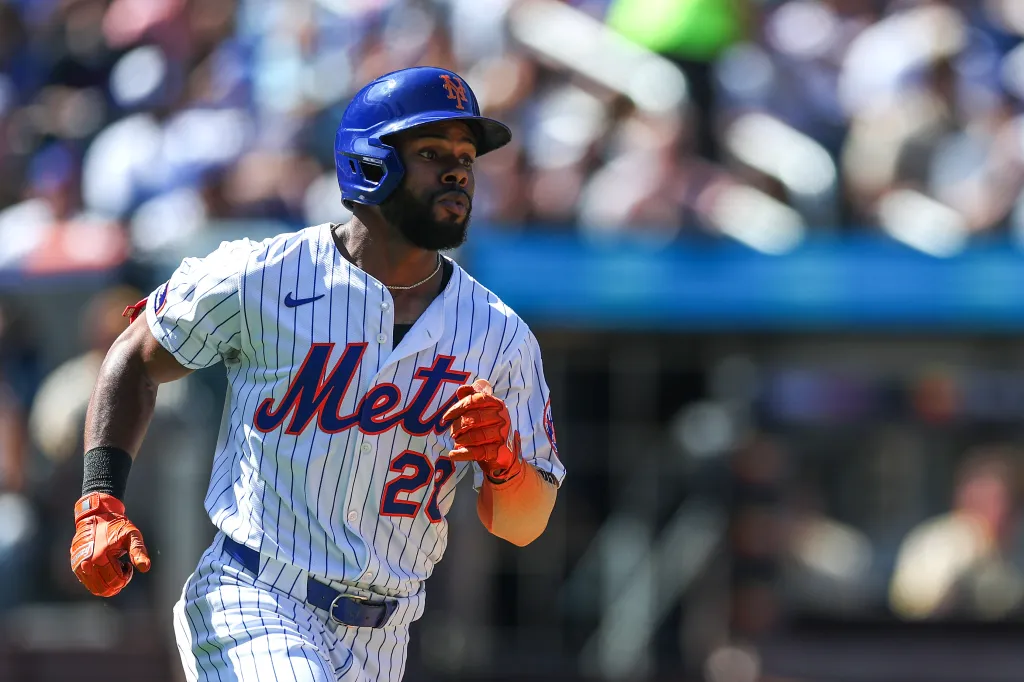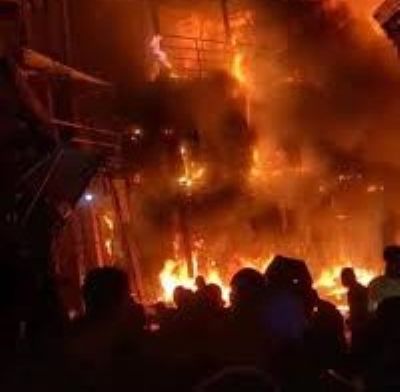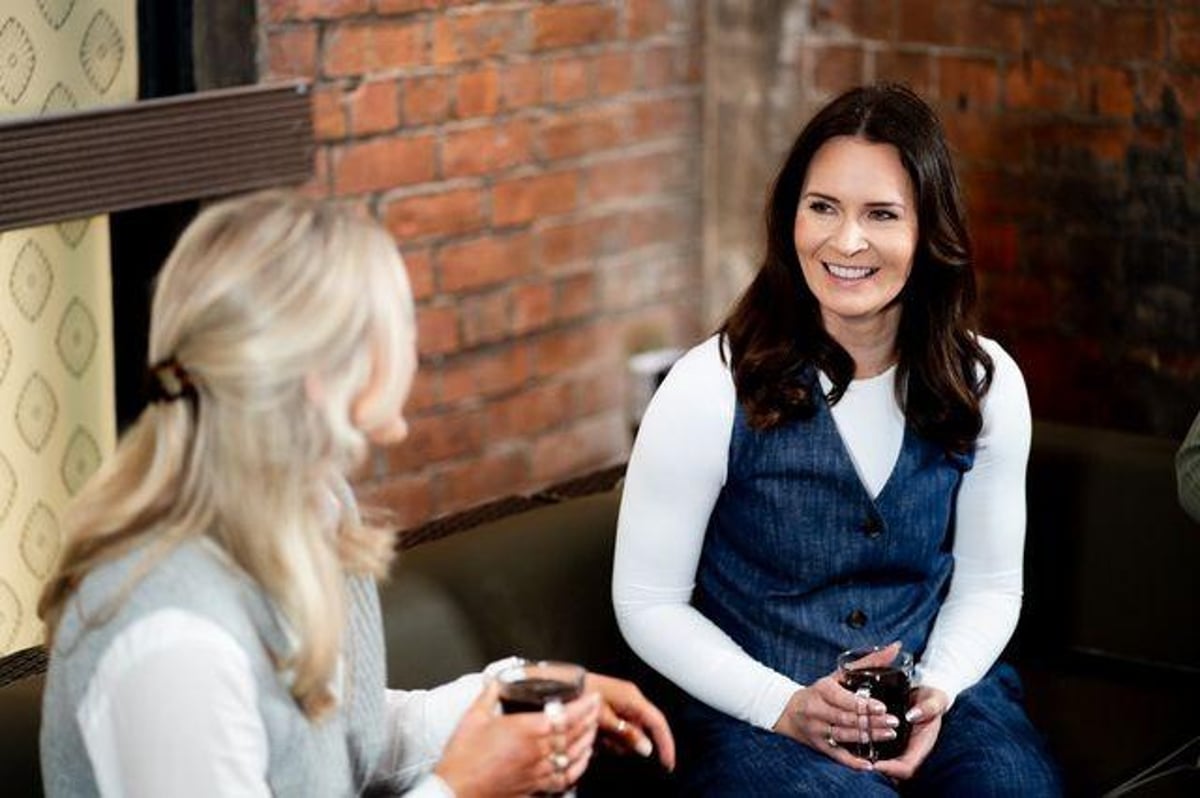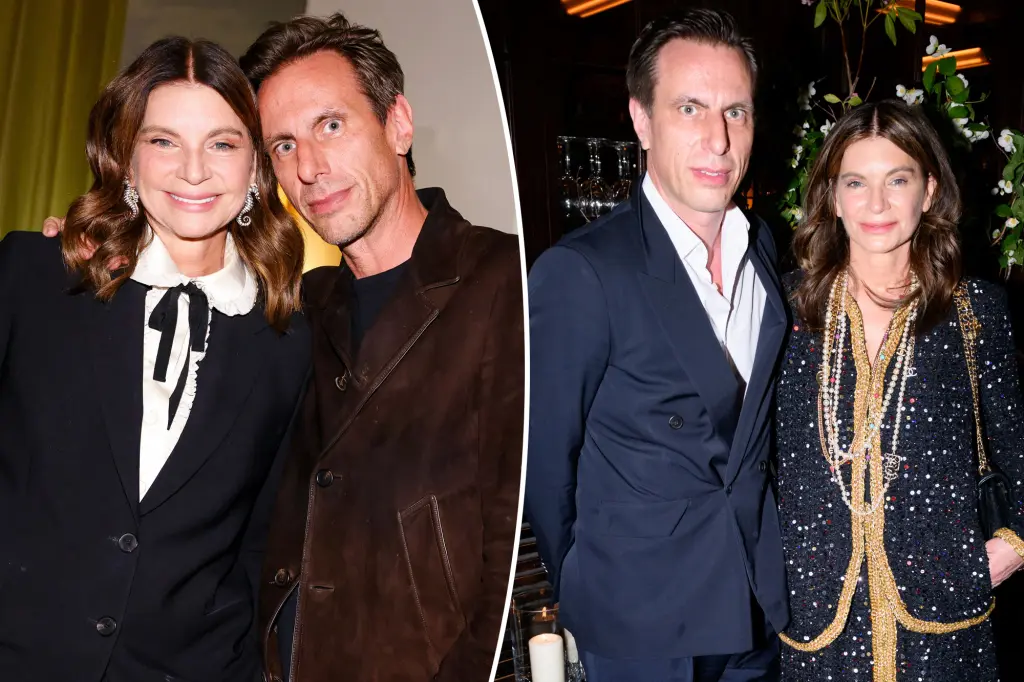
MIAMI — Cedric Mullins knows that he hasn’t gained many new fans since being traded to the Mets. He’s heard the boos and he’s seen what people are saying. If you ask the center fielder himself, he’ll tell you he expected more of himself since coming from the Baltimore Orioles to the Mets at the trade deadline.
“I’m not happy with my performance, just plain and simple,” he told the Daily News in Miami this weekend. “I’ve been kind of going through it in terms of the ups and downs this season in general, just kind of feel like I’m hitting a super low point. So I’m not pleased with my performance, and that’s really all there is to it.”
Mullins knew he would be traded from the only team he’s ever known when the Orioles got off to such a poor start they fired Brandon Hyde, the 2023 AL Manager of the Year. A 30-year-old veteran, he’s not naive to the business of baseball — playing for a losing team in a walk year means you’re on the trading block.
He didn’t expect the transition to be as difficult as it has been.
Before the trade, Mullins was already having a streaky season at the plate, but he hit .290 in July with an .868 OPS to bolster his value on the market. The Mets wanted more production out of the center field spot in the lineup, but they didn’t want to sacrifice the defense.
The club talked to the Chicago White Sox about Luis Robert Jr., and there was some interest in a reunion with Harrison Bader, but he was traded to the Philadelphia Phillies. They pivoted to Mullins, who had similar metrics to Taylor in center field, but less positional flexibility. Taylor plays all three outfield positions and makes any of them look easy, and McNeil can play all three as well, though he’s better in the corners.
Plus, Mullins has always been considered a high-character player. A leader in Baltimore, he was mentored early in his career by Adam Jones. It seemed like a fit.
At least until he started playing, that is.
“I think coming in, the guys were great. Very accommodating, and if I needed anything, they were quick to get on the ball, so I really appreciate them for that,” Mullins said. “Then it was just trying to not add additional pressure to myself to try to perform, which I feel like I’ve done a poor job at. I have not played to the level of which I know I can to help the team, so I’m super disappointed in myself.”
Since coming to the Mets, he’s hit just .183. A 64 OPS ranks him well below the league average. Mullins wanted to show Mets fans what he was capable of, but behind the scenes, it was difficult. His wife, Erika, took care of the logistics, getting settled in a new city with their two-year-old daughter, Mariah. He’s grateful that she took care of everything to allow him to play, but he still felt the need to be there for his family during the transition, and help where he could.
On the field, he was pressing. The Mets were treading water, and he desperately wanted to help them make something happen.
“There have been situations where I’ve caught myself trying to do too much when it wasn’t necessary,” he said. “And there have been situations where I might have over-thought scenarios.”
Last week against the Washington Nationals, Mullins had two costly miscues, one in the outfield and one on the basepaths. It was a strange play. With Luis Torrens on second base, Mullins hit a fly ball down the left field line that appeared to be caught by Daylen Lile. But the left fielder slid into the wall and the ball popped out of his glove. The third base umpire made a safe sign to indicate the ball was still in play.
Mullins went back to second to tag up, but then saw the ball on the ground next to Lile and went all the way around to score. Mullins appeared confused, and stayed at first base. Neither him, nor first base coach Antoan Richardson could hear the call.
He was then doubled off first base when Francisco Lindor hit a line drive to the first baseman.
The Mets lost both of those games, and the late-season losses are now coming back to haunt them.
“It can be difficult just in terms of a complete change in environment and certain expectations for a team to shoot for postseason, and beyond that, the World Series in general,” Mullins said. “It’s tough, in a sense of me trying to take a step back and just kind of soak in the moment because at the same time, it’s a put up or shut up situation. That by itself adds a little bit of pressure.”
Mullins still thinks he has more to give and he hopes he’ll have a chance to show it if the Mets advance to the playoffs.
“It’s a learning experience, for sure,” he said. “One that I’m taking into account and reflecting on.”



